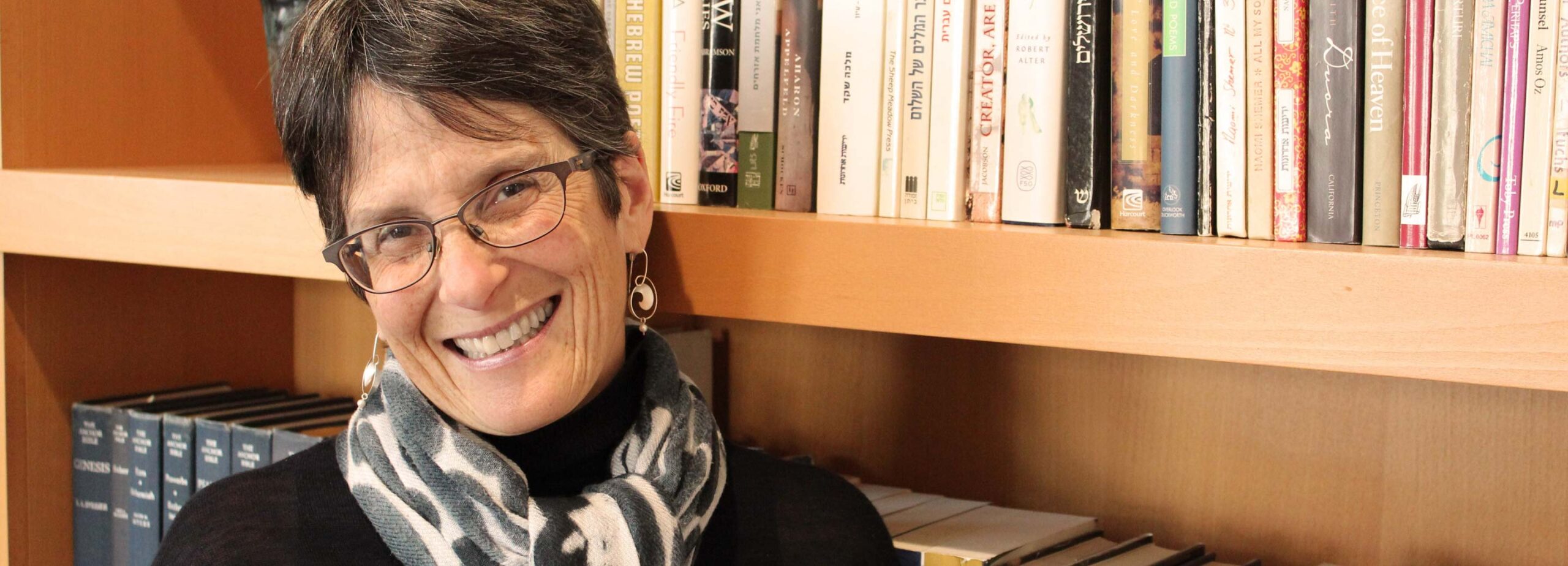Genesis Blessing for the Month of Tevet and Shabbat Chanukah

As we move into the Hebrew month of Tevet, and into Shabbat Chanukah, we find ourselves deep in the Joseph story in our weekly Torah reading cycle.
And, of course, to be deep in the Joseph story is to be deep in the world of dreams.
Last week, we met Joseph the dreamer. He is young, arrogant, and apparently so wrapped up in his cloak of specialness that he is either oblivious to or untroubled by his brothers’ simmering—and soon seething—resentment. “Listen now to this dream I dreamed,” he says to them. The embodiment of entitlement, he doesn’t think twice about what he is saying and to whom. He speaks and expects his brothers to listen. He dreams and expects them to bow.
From there, Joseph’s journey is a series of descents into darkness, from the despair of the pit to the indignities of Potiphar’s house to an indefinite sentence in an Egyptian prison. It is there that we encounter Joseph as an interpreter of dreams. It is his skill as a dream interpreter that frees him from prison and—as our parsha opens this week—it is the same prodigious skill that elevates him to a position of unparalleled power and privilege in Pharoah’s Egypt.
Strikingly, Joseph’s story rolls around and meets us at this time each year.
Just as we are kindling the lights of Chanukah, the Torah invites us to consider the significance of dreams which are, after all, about the insight that emerges in and from darkness.
There is a fascinating, sustained discussion about dreams in Tractate Berakhot of the Babylonian Talmud (55-57). The dreams of the Joseph story are referenced frequently in these pages, but the questions animating the conversation among the sages are intimate and existential. How seriously should we take our own dreams? What significance should we attribute to them? And what should we do when we awake, feeling shaken by where the night has taken us?

I want to highlight three teachings about dreams from this complex, meandering, and multi-faceted conversation, and from them, draw forth a blessing for this month of Tevet.
The first teaching is one taught in the name of Rabbi Berekhya.
“Even though part of a dream is fulfilled, all of it is not fulfilled.”
“From where do we derive this? From the story of Joseph’s dream, as it is written: ‘And he said: Behold, I have dreamed yet a dream: and behold, the sun and the moon and eleven stars bowed down to me’ (Genesis 37:9), and at that time his mother was no longer alive.” According to the interpretation of this dream, the moon symbolizes Joseph’s mother, Rachel. Even this dream, ultimately fulfilled when Joseph’s brothers bowed down to him in Egypt, contained an element that was never fulfilled.
What is at stake in this teaching? Rabbi Berekhya is reminding us, I think, that while we may recognize the power of our dreams, and even acknowledge the prophetic potential within them, we must also interpret them with humility and caution – notably, unlike Joseph as a young man. I hear this as a teaching about the arrogance and idolatry of all-or-nothing thinking and I’d suggest that it is a useful reminder about all of our dreams, both sleeping and waking.
Just because part of a dream feels true—or comes true—doesn’t mean that the whole dream will come true. And the corollary also applies—just because our whole dream is not fulfilled, that doesn’t mean that part of it can’t be. We live in a world of partially fulfilled dreams. This is both a burden and a blessing.
The second teaching is one taught in the name of Rabbi Shmuel bar Nachmani in the name of Rabbi Yonatan. “A person is shown in his dream only the thoughts of his heart when he was awake, as evidenced by what Daniel said to Nebuchadnezzar, as it is stated: “As for you, O king, your thoughts came upon your bed, what should come to pass hereafter” (Daniel 2:29). And if you wish, say instead that it is derived from here, a related verse: “And that you may know the thoughts of your heart” (Daniel 2:30). How will you know the thoughts of your heart? By their being revealed to you in a dream.”
What is at stake in this teaching? Millenia before Freud and Jung, Rabbi Shmuel bar Nachmani is offering a profoundly psychological reading of dreams. Our dreams have much to teach us, not about our fate or our future, but about ourselves. What dreams reveal, according to this teaching, is not the world that lies ahead of us, but the world that lives within us.
The third teaching comes in response to the question: what should you do if you wake up troubled by a dream?
Rabbi Huna bar Ami taught in the name of Rabbi Pedat who taught in the name of Rabbi Yochanan: One who sees a dream from which his soul is distraught, should go and have it interpreted before three people.
The Gemara is initially surprised by this suggestion. Citing another teaching from Rav Hisda—that “a dream not interpreted is like a letter not read”—the Gemara wonders, if you’re concerned about a dream, why get into it? The implication seems to be that the act of interpretation itself entails a risk. Don’t promote the fulfillment of a disturbing dream by giving it more power than necessary.
But then the text takes a beautiful turn.
Instead, our sages suggest, you should engage three people to help you in a process that is called “Hatavat Halom”—“bettering the dream” or transforming the dream into something positive, something from which goodness and blessing can flow.
Here is the description of the ritual they suggest for the person suffering from a troubling dream:
“He should bring three people and say to them: I saw a good dream.
And they should say to him: It is good, and let it be good, may God make it good.
May they decree upon you from heaven seven times that it will be good, and it will be good.
Afterwards they recite three verses of transformation from bad to good,
three verses of redemption,
and three verses which mention peace.”
The ritual contains an implicit and honest acknowledgement that yes, a dream can leave us feeling distraught. The question is what we do with it when we awake.
The answer, which I find profoundly tender and wise, is two-fold.
First, we recognize that we are not passive witnesses to our dreams. We must awaken—again and again—to a sense of our agency, to our capacity to make meaning out of our dreams and to turn them toward goodness, redemption, and peace.
And second, we don’t do this alone. We do it with the help of friends and we do it with the help of heaven. Dream interpretation is one of the many things about which our tradition says—don’t do this alone, gather people around you, surround yourself with goodness and love. This is not a sign of weakness; in fact, it is the truest sign and source of our strength.
As we enter the month of Tevet and kindle the remaining candles of this Chanukah,
May we humbly embrace this world of dreams, partially fulfilled,
May we courageously face the inner worlds that our dreams reveal,
And may we gather and draw strength from one another
Eliciting from each other dreams of goodness and of peace.
Rabbi Sharon Cohen Anisfeld is president of Hebrew College in Newton, MA.

